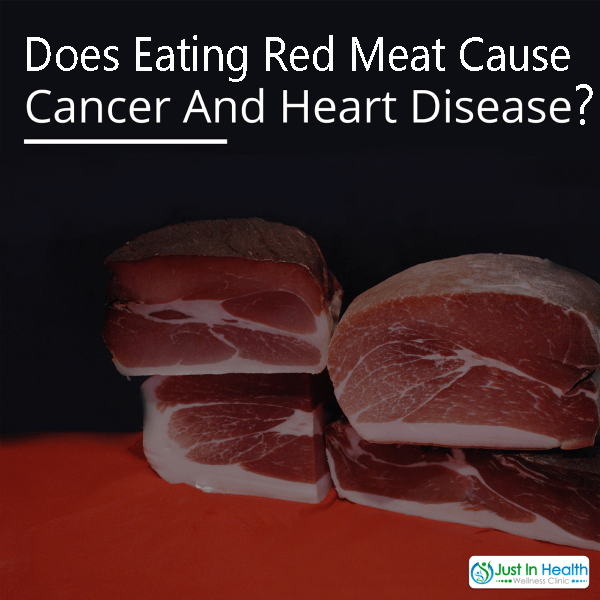

By Dr. Justin Marchegiani
According to a recent study conducted by Harvard, red meat is linked to cancer and cardiovascular disease.
“Red Meat Kills” is a catchy headline, so it’s easy to see why the “news” has spread like wildfire. However, new studies are being released every day, reporting conflicting findings, so it can be hard to know what to believe. Today I’m going to break down how this study was conducted, and how the results may not be as sensational as the study has led the public to believe.
Continue reading to discover this study’s shortcomings, and you’ll be well-informed and able to make your own decision!

The Confounding Variable: This study was an observational study that gave participants questionnaires every four years to ask what they ate, then looked at who developed cancer and heart disease. There are several problems with a study conducted in this manner. Firstly, who is able to remember with any reliable degree of accuracy what they consumed over a four year period? Secondly, if a person said they ate meat, but the meat they logged was a hotdog on a highly processed, sugar- and gluten-rich bun, or sausage on top of a sugary and glutenous crust, the health implications become much more complex. The gluten and sugar are called confounding variables, and are important to consider, as we know that gluten and sugar are not factors you can ignore when looking at your health.
The study would need to be reconducted, isolating meat away from gluten, sugar, and processed foods to avoid these confounding variables.

Epidemiological vs Clinical Study: This study was an epidemiological study, which is only good for producing a hypothesis (e.g. “I think red meat causes cancer”). A clinical study would need to be conducted to actually prove cause and effect.
For example, to test this hypothesis in a clinical trial, several groups would need to be isolated with their diets closely observed:
Group 1: Organic pasture-raised meats, no process sugar or grains allowed.
Group 2: Conventional meat.
Group 3: Conventional meat, with grains and sugar.
Group 4: Control group (eat whatever they want).
Click here to learn if red meat is right for your health goals
The study could even be taken one step further. A blind or double blind study, in which the participants and the doctor don’t know who’s eating what, could remove any preexisting bias.
Epidemiological studies like this one can only conclude a correlation, but as we know, correlation does not equal causation. From the hypothesis gathered from this study, a controlled study would need to be conducted to see if the hypothesis holds water. It’s irresponsible to extrapolate that information and put it in the media and scare everyone (which is done here) before a clinical trial has been completed.

Meat Quality: These studies never control for the quality of meat. Organic, pastured, free range, antibiotic-free, hormone-free meats versus conventional factory farmed meat pumped full of antibiotics and hormones is going to make a big difference. The study does control for processed vs unprocessed meat, but bacon (which is considered processed) could be from organic pasture-raised pork. The quality of the animal meat matters, but research conveniently ignores this.
Personally I do believe that conventional meat is bad for you and can lead to the health complications reported by the study. This is not because meat in general is unhealthy, this is purely based on the quality of this meat. Think about it- these animals are fed moldy gluten-filled grains and are shot with antibiotics and artificial hormones. They’re sick.
In other words, animals that are treated well and fed well have the potential to provide wellness to the person that consumes them. Animals that are treat badly, fed crap and injected with drugs don’t have the ability to convey health to the person that consumes them. So, take this sensationalist news with a grain of salt, and remember to examine studies like this closely!
Still have questions about red meat? Click here to get your questions answered